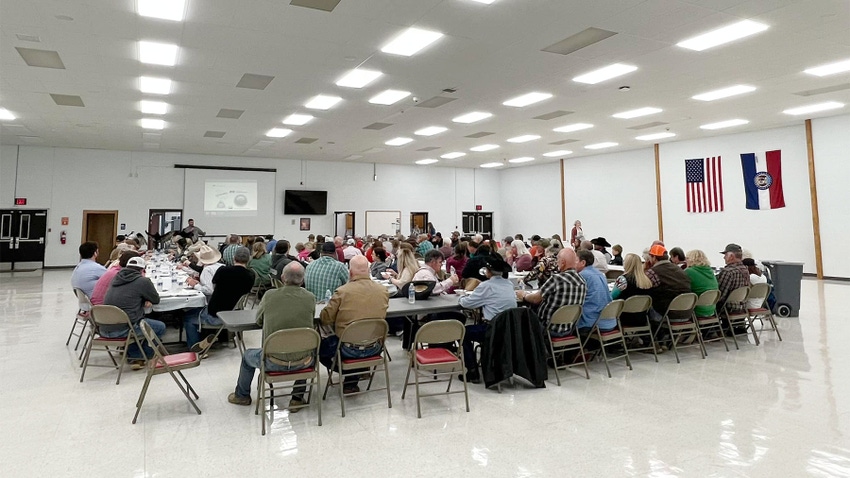February 27, 2024

The winter season is the time most commodity groups hold their annual meetings. National and statewide groups bring members together for industry updates and policy discussions.
I’ve had the opportunity to attend the state meetings for most agriculture groups over the past couple of months, including cattle, pork, soybeans, corn and Missouri Farm Bureau.
These industry meetings are incredibly valuable to producers. Many of the commodity groups offer educational sessions where producers can hear from industry experts discussing topics relevant to their industries. These sessions often include cutting-edge research and new ideas that can help take a producer to the next level on their farms and ranches.
I attend these meetings with my producer hat on. Our family raises cattle, corn, soybeans and hogs, so it’s natural that we are members in these associations. I see friends and renew acquaintances at each commodity stop.
Much like the Missouri State Fair, these meetings are a chance to catch up with friends who, like my family and yours, stick pretty close to the farm most of the year.
My leadership trajectory to becoming Missouri Department of Agriculture director started with Missouri Farm Bureau, where we continue to be active members. Today, I’m able to share with commodity groups a glimpse into the happenings at MDA.
Sharing state ag department work
Our team works each day to promote and protect Missouri agriculture. I appreciate the opportunity to tell the story and provide an update on what is happening in our office.
At the Missouri Cattlemen’s Association Convention in January, we had the chance to talk directly to producers about the increasing black vulture problem in our state. I hope producers hear our radio ads or see the print advertisements, but if not, I wanted to let them know who they can call for help if the birds are a problem on their farms.
I also get the chance to tell producers about the work our team is doing at the Missouri State Capitol. For instance, one of our legislative priorities this year is to ensure the MDA Meat and Poultry Inspection Program is fully funded. Budget shortfall from USDA is putting a strain on our team and the ability to make sure all state-inspected processing plants can operate to meet the needs of consumers and producers.
Taking on the Hill
We are also in the Capitol each day with a keen ear to the ground for legislation that affects the state’s farming and ranching community. If legislation alters the way you are allowed to do business, or hurts your bottom line, our team is in the building at work.
Missouri’s commodity groups are also there working on behalf of producers, which brings me back to the importance of your involvement.
Policy direction, priorities and candidate support are determined by the membership of those agriculture organizations. Staff members are in the Capitol working on your behalf so you can run the day-to-day operation back home.
However, when your organization needs producers to come to Jefferson City, I encourage you to do so. Your discussions with legislators have a tremendous amount of impact.
A good example is Cowboys at the Capitol. Missouri Cattlemen’s Association members come to Jefferson City each Wednesday during session to have conversations and form relationships with legislators from both parties.
MCA leadership will tell you how valuable those conversations and relationships are when legislators make policy decisions affecting their membership.
The direction and impact that these organizations make is greatly determined by those who show up and speak up. Don’t miss your opportunity!
Chinn is the director of the Missouri Department of Agriculture and lives on a diversified farming operation in northeast Missouri.
About the Author(s)
You May Also Like




